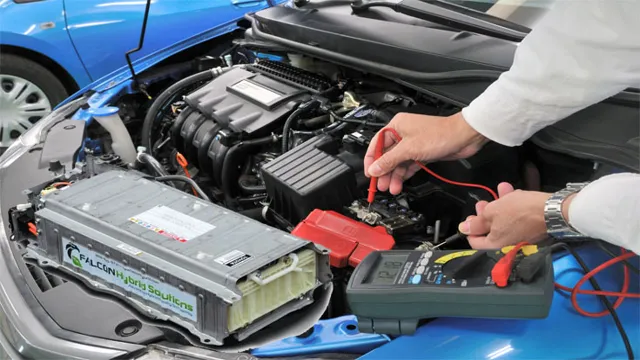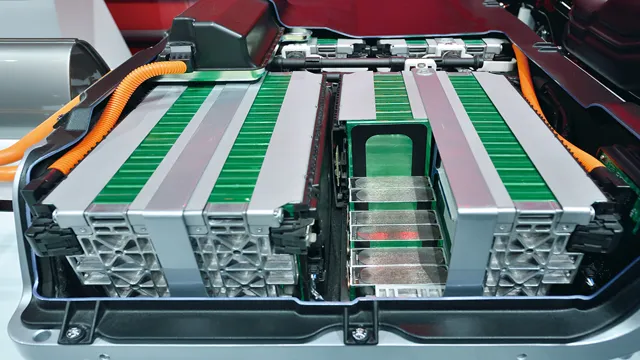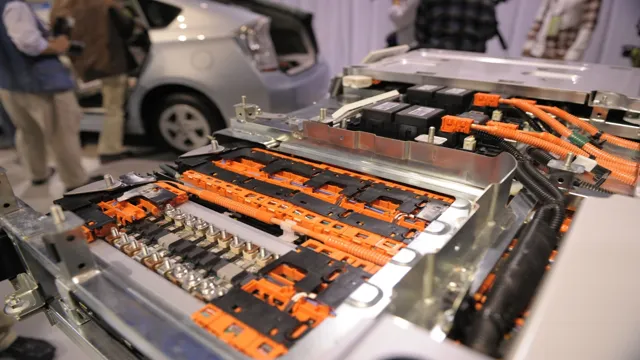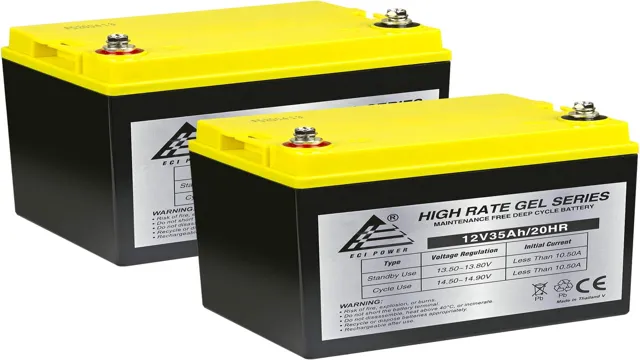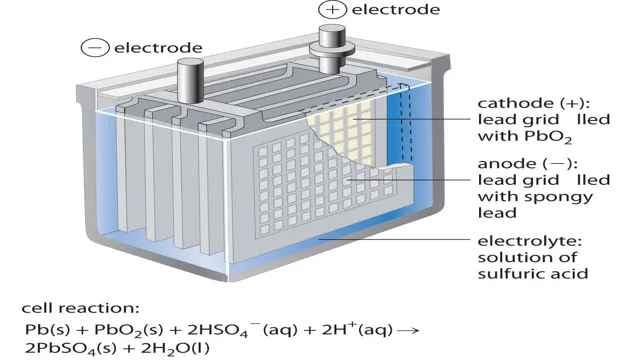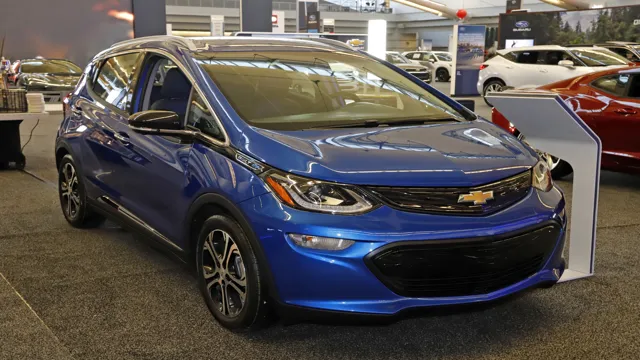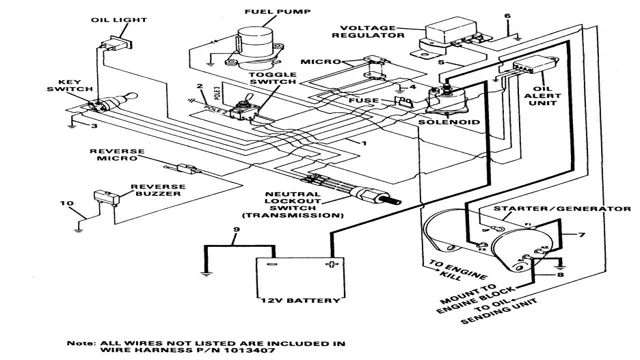Drive Worry-Free with Chevy Electric Car Battery Warranty: Get the Ultimate Protection for Your Eco-Friendly Ride!
Are you in the market for an electric car and considering a Chevy? One important factor to consider when purchasing an electric car is the battery warranty. Chevy offers a battery warranty for their electric vehicles, which can give you peace of mind and protect your investment. Let’s take a closer look at Chevy’s electric car battery warranty and what it covers.
When you purchase a Chevy electric car, you’ll receive a battery warranty that covers the battery for 8 years or 100,000 miles, whichever comes first. This warranty guarantees that Chevy will repair or replace any battery that fails due to defects in material or workmanship. This warranty covers all Chevy electric vehicles, including the Bolt EV and the Volt.
It’s important to note that the battery warranty is separate from the vehicle’s bumper-to-bumper warranty, which covers other components of the car. Chevy’s electric car battery warranty is one of the longest in the electric car market, which makes it very appealing to buyers. Not only does it give you peace of mind, but it also shows that Chevy is confident in the quality of their battery technology.
Overall, Chevy’s electric car battery warranty is a great selling point for those considering an electric vehicle. It demonstrates Chevy’s commitment to ensuring the longevity and reliability of their electric cars.
What Is Covered
If you’re considering purchasing a Chevy electric car, it’s important to know what kind of warranty is included with the battery. The good news is that Chevy offers a battery warranty for eight years or 100,000 miles, whichever comes first. This means that if your battery fails during that time period, Chevy will cover the cost of repair or replacement, depending on the circumstances.
However, it’s important to note that the warranty only covers defects in materials and workmanship, not damage caused by accidents, misuse, or normal wear and tear. So, if you’re planning on driving your Chevy electric car for a long time, it’s a good idea to take care of the battery and follow proper maintenance guidelines to ensure it lasts as long as possible. Overall, the Chevy electric car battery warranty provides peace of mind for drivers and helps make Chevy electric cars an even more attractive option for eco-conscious consumers.
Battery Defects
When it comes to battery defects, it’s important to know what’s covered under warranty. Manufacturers typically offer repair or replacement for defects that are the result of faulty materials or workmanship. This might include issues with the battery itself, such as short-circuiting or software malfunctions that cause the battery to drain too quickly or charge inefficiently.
Some warranties may also cover damage caused by misuse or environmental factors, such as water damage or extreme temperatures. However, it’s important to read the fine print and understand the limitations of your warranty, as some defects may not be covered by the manufacturer. If you’re unsure about whether a defect is covered under warranty, it’s best to contact the manufacturer or authorized service provider for guidance.
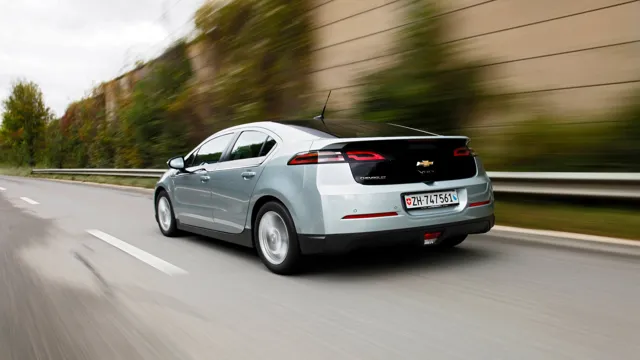
Performance Degradation
Performance degradation can be a thorn in the side of anyone relying on technology for day-to-day tasks. At its core, performance degradation refers to the slow down of a computer, app, or website that once functioned optimally. It’s usually the result of various factors such as an overloading CPU, limited memory, or outdated software.
Any one of these factors can negatively impact the functionality and productivity of a computer, leading to frustration and time wasted. Performance degradation can make even simple tasks such as browsing the internet, editing a document, or playing a game, feel like an excruciatingly slow ordeal. It’s crucial to identify the root cause of performance degradation and take action to remedy it before it causes more significant problems.
Conducting regular maintenance, updating software, and ensuring hardware is up to date can help keep performance at optimal levels. By doing so, you’ll experience a faster, more efficient computer that won’t leave you feeling frustrated and unproductive.
How Long is the Warranty
If you’re thinking about buying a Chevy electric car, it’s important to know how long the battery warranty lasts. Luckily, Chevy offers a generous warranty for their electric car batteries. The standard warranty for the battery on a new Chevy Bolt EV is 8 years/100,000 miles (whichever comes first).
This means that if you have any issues with your battery during that time, Chevy will cover the cost of repairs or replacement. Additionally, Chevy offers an extended warranty for the battery that can provide coverage for up to 10 years/150,000 miles. This added protection can provide peace of mind for those who plan to keep their electric car for the long term.
Overall, Chevy’s battery warranty for their electric cars is a great benefit for those who are considering making the switch to an electric vehicle.
8-Year/100,000-Mile Limited Warranty
If you’re in the market for a new vehicle, you’re probably wondering how long its warranty will last. Well, with our 8-year/100,000-mile limited warranty, you can rest easy knowing that you’re covered for a long time. This warranty ensures that any manufacturer’s defects and issues are addressed and fixed, so you don’t have to worry about unexpected repair costs.
Plus, our warranty is transferable, so if you decide to sell your vehicle, the new owner can enjoy the peace of mind that comes with an extended warranty. In short, our warranty is designed to give you the confidence and protection you need when investing in a new vehicle. So why wait? Visit us today to learn more about our warranty and find the perfect vehicle for your needs.
Warranty Transferability
If you’re thinking about buying a Chevy electric car, you might be wondering whether the battery warranty is transferable. The good news is, it is. Chevy electric car batteries come with a warranty that lasts for 8 years or 100,000 miles, whichever comes first.
This warranty covers any defects in materials or workmanship that might arise during normal use. And if you sell your Chevy electric car before the warranty is up, the new owner will be able to take advantage of any remaining coverage. This is great news for anyone thinking about buying a used Chevy electric car, as it means they can still benefit from the original warranty coverage even though they weren’t the original owner.
So, whether you’re planning to keep your Chevy electric car for years to come or sell it down the line, you can rest easy knowing that the battery is protected by a comprehensive warranty that’s fully transferable.
Transferable to Subsequent Owners
When it comes to purchasing a new home, it’s important to consider the transferability of the warranty. After all, a home is a significant investment, and you’ll want to ensure that it’s protected for as long as possible. Thankfully, many home builders offer warranties that can be transferred to subsequent owners, ensuring that the property remains protected long after the original owner has moved on.
This can be a particularly attractive feature for potential buyers, as it provides added peace of mind and financial security. However, it’s important to note that not all warranties are transferable, so it’s essential to review the fine print carefully when making a purchase. Ultimately, a transferable warranty can be an excellent selling point and a valuable asset to both current and future homeowners.
Conditions for Warranty Coverage
If you’ve recently purchased a Chevy electric car, it’s important to understand the conditions for warranty coverage on your vehicle’s battery. Generally speaking, Chevy electric car batteries are covered by a warranty that lasts eight years or 100,000 miles, whichever comes first. However, there are certain conditions that must be met in order for this warranty to apply.
For example, the battery must have suffered from a defect in materials or workmanship in order for it to be replaced under warranty. Additionally, the battery must have been used and maintained in accordance with Chevy’s guidelines and specifications. This means ensuring that the battery is charged and discharged properly, and avoiding exposing it to extreme temperatures or other potentially damaging conditions.
By following these guidelines and conditions, you can help ensure that your Chevy electric car battery is covered under warranty if any issues arise in the future.
Regular Maintenance Requirements
As a homeowner, it’s important to understand the conditions for warranty coverage on your home’s appliances. One key factor is regular maintenance requirements. In order to be covered by your warranty, you must keep up with the manufacturer’s recommended maintenance schedule.
This can include things like replacing air filters, cleaning coils, and flushing out sediment in your water heater. Neglecting to perform these routine maintenance tasks can not only void your warranty, but also result in costly repairs down the line. Think of it like getting regular check-ups for your car – preventive maintenance can help you catch potential issues before they become major problems.
By staying on top of your appliance maintenance, you can ensure that your warranty remains valid and your appliances continue to perform at their best.
Damage from Accidents or Misuse
When it comes to warranty coverage for your device, it is important to understand the conditions in which the warranty will apply. One common condition is that damage caused by accidents or misuse may not be covered by the warranty. Examples of accidents or misuse include dropping your device, exposing it to extreme temperatures, or attempting to repair it yourself.
Essentially, any damage that is not directly related to a defect in the device itself may not be covered under the warranty. It is important to read the terms of the warranty carefully and take precautions to prevent accidental damage or misuse of your device. By doing so, you can ensure that you are eligible to receive warranty coverage if you ever need it.
Conclusion
In today’s world, where our dependence on technology is rapidly increasing, the warranty on a Chevy electric car battery is more important than ever before. However, fear not, Chevy has got you covered – their battery warranty is not only strong and reliable, but also delivers a punch of power that is sure to keep you moving forward with confidence. So, whether you’re road tripping across the country or just cruising around town, rest assured that your Chevy electric car battery is ready to keep you charged and fill your life with energy.
“
FAQs
What is the warranty period for the battery of a Chevy electric car?
The warranty period for the battery of a Chevy electric car is 8 years or 100,000 miles, whichever comes first.
Will the battery of a Chevy electric car be covered under warranty in case of damage due to an accident?
The battery of a Chevy electric car will not be covered under warranty in case of damage due to an accident. The warranty only covers defects in the battery caused by manufacturing or materials.
Can I extend the warranty period for the battery of my Chevy electric car?
Yes, you can extend the warranty period for the battery of your Chevy electric car by purchasing an extended warranty from the manufacturer or a third-party provider.
What factors can affect the life and performance of the battery in a Chevy electric car?
The life and performance of the battery in a Chevy electric car can be affected by factors such as temperature extremes, frequency of charging, driving patterns, and overall vehicle maintenance.
